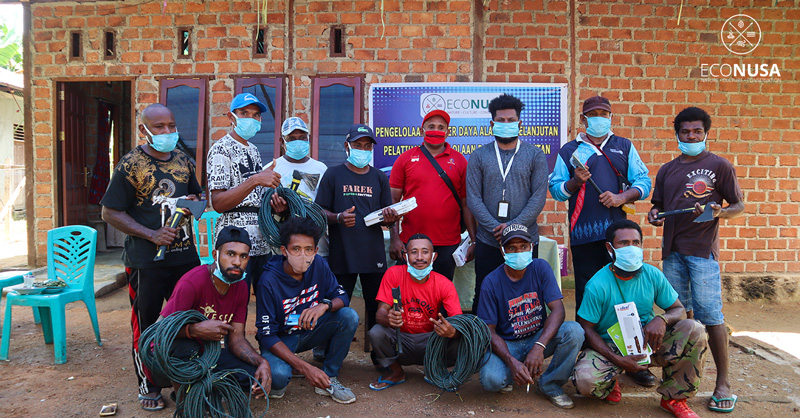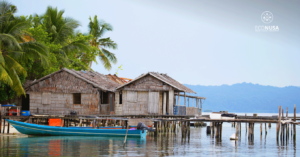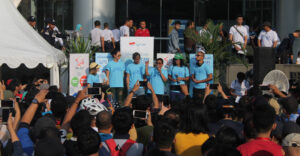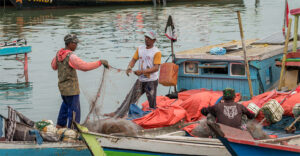
Lingkar Jerat Papua (LJP) Cooperative tries to establish an organization for economic independence of indigenous community relying their lives on forests. The LJP cooperative opens access to wild boar (sus crofa) commodity market supplied by the indigenous people while seeking a decent pricing to the wild boar trappers group and customers and keeping hygienic product standard.
Chairman of LJP Board, Paskalis Awak, said that cooperative established by EcoNusa Foundation was on the basis of spirit to build a sovereign indigenous people based on sustainable resources. Based on the conducted assessment, wild boar has been entitled as notable commodity due to its ample expanse of distribution in some regions.
“Every year, female wild boar could give 2-12 births of piglets. On the other hand, wild boar has become pest destroying community agriculture. At Tambrauw coast, wild boar is the predator of starfish turtle’s eggs,” said Paskalis to EcoNusa Thursday, May 6, 2021.
Read also: Food Estate and Future of Biodiveristy in Tanah Papua
The distribution of wild boar commodity is also found in Imbuan Village, Tambrauw Regency; Malagasi Vilalge, Malaumkarta Village and Klayili Distrit in Sorong Regency; and Kasim Village at Salawati Island, Raja Ampat Regency. However, wild boar industry has not yet been developed in these regions. Ironically, to meet the need for pork still relies on supply from Manado, and even Sumatera.
“We work together with trapper group in Sorong Raya landscape. Each village has 15-20 youngsters involving in group. Meanwhile, there are 6 peoples at production house in Sorong City. We hope it could help improve community livelihood while safeguarding the forests,” said Paskalis.
Prior to establishment of LJP Cooperative, wild boar is only used for food material to meet the public need for protein. If it is surplus, they sell on the low price. The price standard is not definite. The formation of cooperative has made the trapper group get selling price limit level.
Read also: A Long Way to Preserve Papua’s Typical Food
EcoNusa’s Natural Resource Management Program Associate, Samuel Wospakrik, said that Covid-19 pandemic has given challenge to market pork-based food products. LJP Cooperative set and guaranteed hygienic processing standard to convince consumer who will consume wild life meat.
Another challenge currently comes from African Swine Fever (ASF) spreading in West Papua Province. Despite the fact that ASF has yet to be found in Sorong City, LJP Cooperative put serving instruction on the package to kill virus during cooking. This is to provide secure feeling to consumer.
Citing Alodoker , the ASF virus is derived from Asfarviridae family. However, the ASF here is different from pig flu virus despite the similar name. The ASF is not hazardous to human. In other words, consuming pork infected by the ASF will not harm human health.
Read also: Human and Natural Relation in the Land of Papua
As to a veterinarian of Sorong City’s Animal Husbandry Office, Drh. Fidiana, human could serve as the virus transmission medium by direct contact or consumption of the infected pig. The food waste and direct contact with paddock of the infected pig could serve as the other transmission medium.
To stop the transmission of ASF, West Papua government has closed down the entrance of pig and wild boar commodities. Production and trading processes of pork in Sorong City could still run due to the absence of ASF here.
“The sale of pork at local level could be done by putting serving instruction on the package. Thus, public could get on the cooking standard of 90 Celsius degree temperature for 60 minutes,” said Samuel.
With the abundant potentials, Paskalis believed that the LJP Cooperative will help improve economy without sacrificing natural potentials and conservation to the community.
Editor: Leo Wahyudi & V. Arnila Wulandani




